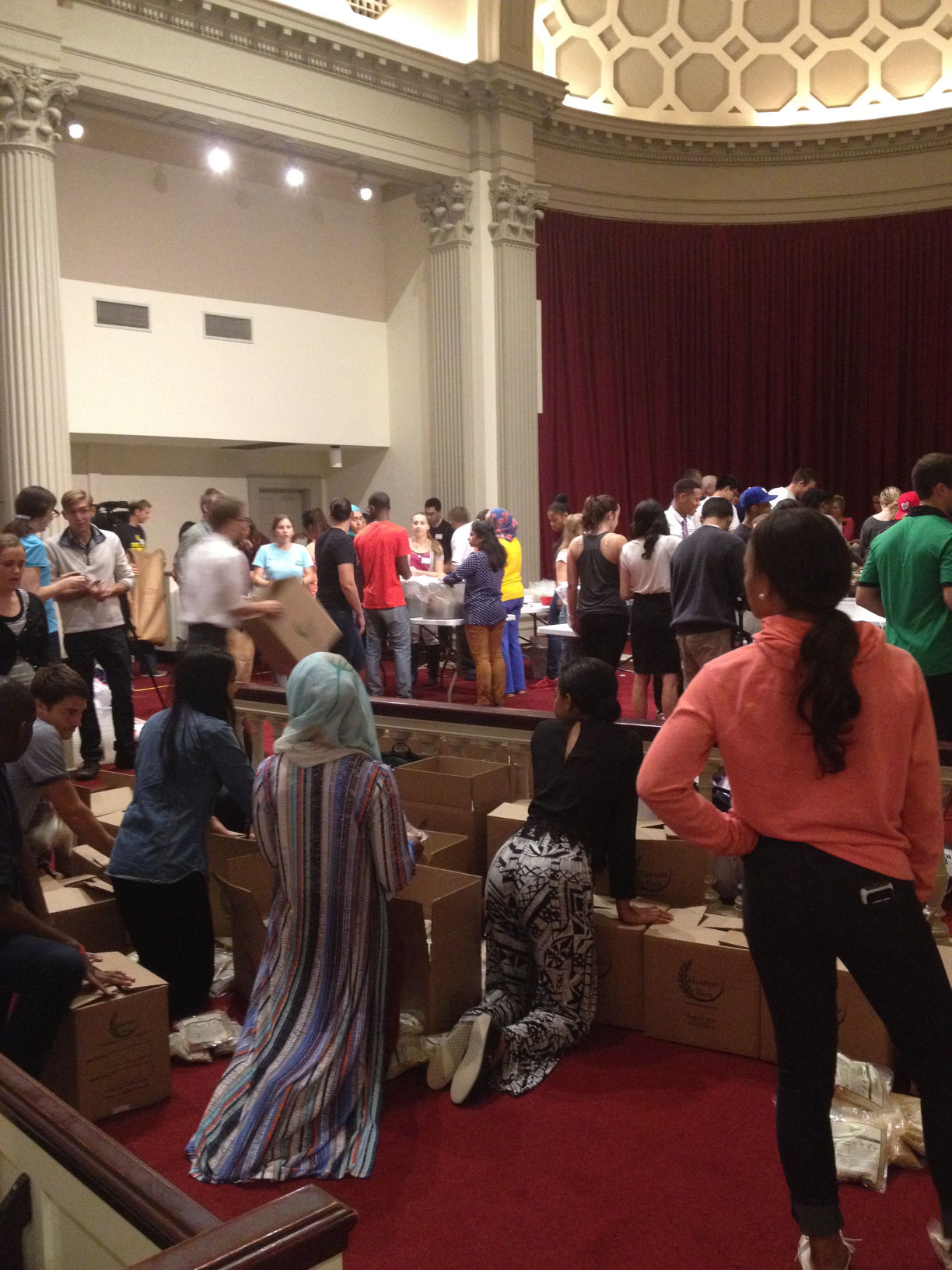
More than 150 volunteers gather with Terps Against Hunger in the Memorial Chapel to pack meals for children in Baltimore.
More than 150 people came out to the University of Maryland’s Memorial Chapel on Tuesday night to pack meals for children in Baltimore.
The student group Terps Against Hunger, which aims to combat hunger in the United States, partnered with different religious groups on the campus to create a food packing station in the chapel.
The program started at 4:30 p.m. with a brief presentation from Terps Against Hunger members about the mission behind the group — a subset of Kids Against Hunger, which is based in Washington, D.C. — and the issues that spurred its creation.
The meals packed during this event are all going to Baltimore children who don’t have adequate access to food, said senior Jonathan Fix, an independent studies major studying bioethics and epidemiology. By the end of the event, the volunteers packed 10,000 meals.
“[Children] don’t do as well in school, they don’t get into the college they want to, they don’t get the job they want, and it becomes a cycle that [then] affects their children,” Fix said.
READ MORE: Service initiative gives UMD workers paid leave to help the community
Terps Against Hunger member Joshua Turskey, gathered the volunteers around each station, showing them how to pack each bag with the four ingredients: soy, vitamins, rice and dried vegetables.
The sophomore architecture major demonstrated the process for each and suggested the volunteers do things to have fun with it, such as chant the ingredient they were packing or yell when they needed refills.
Because more volunteers came than the group members had anticipated, they split up the packing into shifts so everyone who came out could help create the meals.
Not only will the children who receive the meals benefit from the service event, but volunteers did, too.
“It was fun,” said freshman astronomy and physics major Drew Leisner. “I like helping out with feeding people who need it more than I do.”
Mary Sorensen, a freshman computer science major, shared that sentiment.
“I liked that they put such an effort into making a meal that was the most possible advantage with the least possible cost. It was clear that they actually wanted to do something … real,” she said.
Rev. Brett Pinder, the chaplain of the United Methodist Church at this university also attended the service project. He said he was glad to see that so many volunteers came out and that different religious communities came together to work.
“That’s why we were so excited about this event,” Pinder said. “It is an event with some energy, something we can get our hands on and do across traditions.”



